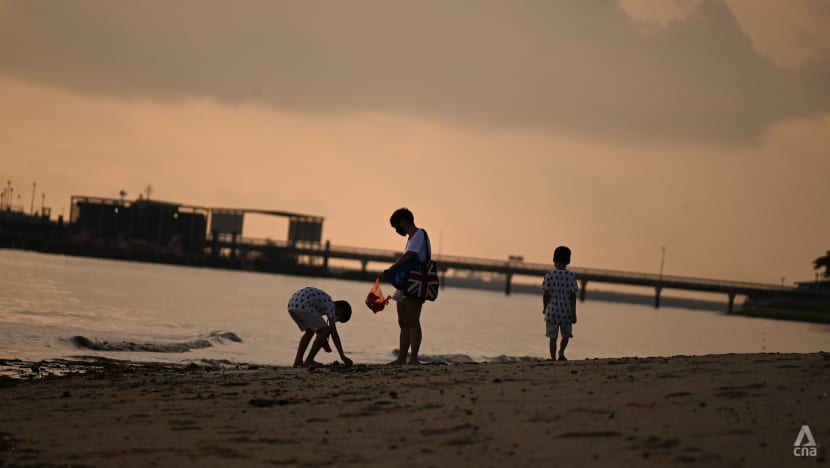Beachgoers reminded to not collect, touch wildlife at intertidal zones: NParks

A family at Changi Beach on Sep 10, 2021. (Photo: Gaya Chandramohan)
SINGAPORE: The National Parks Board (NParks) on Wednesday (May 18) reminded beachgoers to observe the appropriate etiquette when visiting intertidal zones.
Visitors should refrain from touching or trampling on any wildlife so that they thrive in their natural habitats.
“While a few wildlife species can tolerate gentle touch, many are very sensitive to tactile disturbances,” said NParks.
Individuals should also refrain from collecting wildlife as each animal has its own ecological function and contributes to the health of the intertidal habitats.
“They are also unlikely to survive for long when taken out of their natural habitat. People who are unfamiliar with marine wildlife species may also endanger their own safety as they cannot recognise stinging or venomous marine wildlife,” added NParks.
Covered shoes are also recommended as there may be sharp rocks or animals with spines in the intertidal zones.
Intertidal areas are the coastal zones between the highest and lowest tidemarks. Habitats found here include rocky shores, sandy beaches and seagrass meadows.
The advisory comes ahead of the June school holidays. NParks said that many families with children may visit intertidal zones during this period, especially during weekends or public holidays.
NParks said its staff members and volunteers will also step up efforts to educate the public on intertidal biodiversity and remind them to observe the appropriate etiquette at intertidal zones.
"Intertidal habitats are fragile and critical to the health of the marine ecosystem," it added.
Where necessary, access to selected beaches may be managed during peak periods to avoid overcrowding and reduce risk of the public trampling on marine creatures.
“We seek the understanding and support of the public in protecting our intertidal biodiversity so that more people are able to enjoy them,” said NParks.














